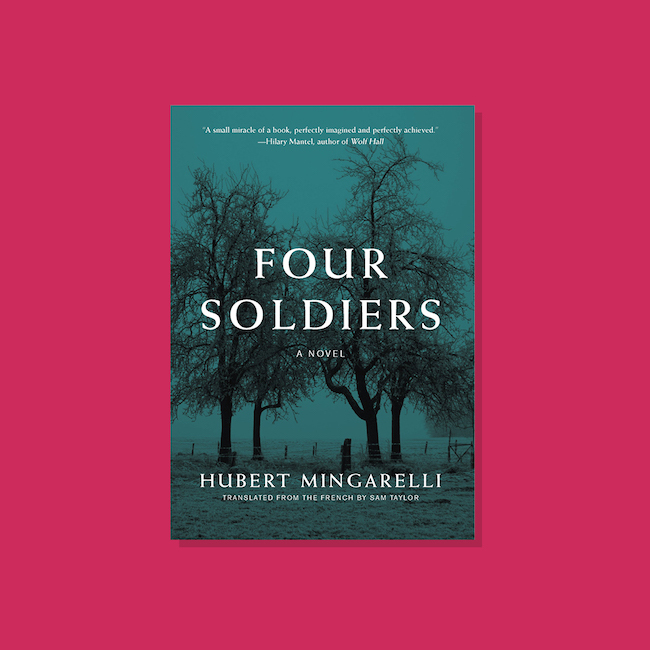
This slim novel by the late French writer Hubert Mingarelli speaks to many issues including friendship, fraternity, brutality, and youth. It is the winter of 1919, the Russian Civil War bleeds through Eastern Europe, yet a handful of soldiers are able to find solace in this brief intermission as their unit waits to re-emerge or recommence hostilities. For most of the 160 or so pages, the story is isolated to the “daily miracles” of peace, as the reader follows the group’s idyllic interaction with the land and what little is left. Mingarelli, as the Irish Times notes, is “a master of lyrical restraint”, strategically avoids a narrative led by the sweeping atmosphere of war. In fact, the experiences of these soldiers are so far removed from the polemics and physical cruelty, that these isolated moments of reprieve and comfort – excursions to a serene pond, admiration of a cigarette lighter, and meditations around the remains of a train track – give the story almost a molecular sense of vision into the unseen. It feels too easy to compare such episodes to feints since neither Mingarelli nor the characters themselves mean to deceive. Yet, Mingarelli is also a technician, and this taut story proves that he knows exactly when and where to deliver the tragic blow.
It is in the final pages of the book that the reader is forced to confront what the novel was about all along. As in war, the making sense of things comes after the conclusion, sometimes lifetimes after, because the present stuns and the past obscures. And, whether from hindsight bias or just through pure experience, as the fog of memory and evasion dissipates, it is clear the inevitability of all things, of the dangers around the margins, the spectre of death on and off the page. It hurts, deeply, nonetheless.
For me, the gut punch wasn’t so much the scene in which the unit escapes the forest, but the aftermath when the narrator opens the notebook. Behind the title, the narrator, and the historic context, was the fifth soldier. This was the story all along, this question of how does one, anyone, write about war?
Apart from the very urgent fact that at the beginning of the Russian Revolution, only about two-thirds of the male population in Russian lands were literate (and one could possibly assume even higher rates of illiteracy for the majority of the demographics constituting the military as recruits were often from areas of severe poverty), there is the persistent question in the field of history on how war is documented. Conflict, being the most sensitive to historiographical rigor, is fecund for interpretation and selection. It is a merciless arena where the defeated perpetually battle for recognition and the victors weave what little truth exists into myth.
It is heartbreaking to see the futility of it all at the end of the story. The soldiers each requesting, with such earnestness, the recording of the little wonders of their day-to-day existence. The fifth soldier devoted to this record, mimicking the movements of writing because although he doesn’t know how to write, he understands and respects the importance of the action of writing. Since these soldiers were in such early stages of their youth, one has to wonder if they truly understood what they were fighting for, or similarly, mimicking such acts of violence because it was choreographed for them.
I read the novel in about a day and it is one of the few stories that has stayed with me that upon recollection, I still feel that strain in my core as I, along with the narrator, stare at the blank page. That which we cannot express, remember, or understand, and those whose gentle existence on this earth come and go without notice, these are the backdrop to the cacophony and savagery of war.
Four Soldiers, translated by Sam Taylor, was published in English by The New Press in October 2018, following the original French Quatre soldats published by Seuil in January 2003. Mingarelli won the Prix Médicis in 2003 for Quatre Soldats and was longlisted, with Sam Taylor, for the Man Booker International Prize in 2019 for the English translation of Four Soldiers. A Canadian-produced film adaption of the novel premiered in 2013.
— Sarah Wang, Programming Coordinator
